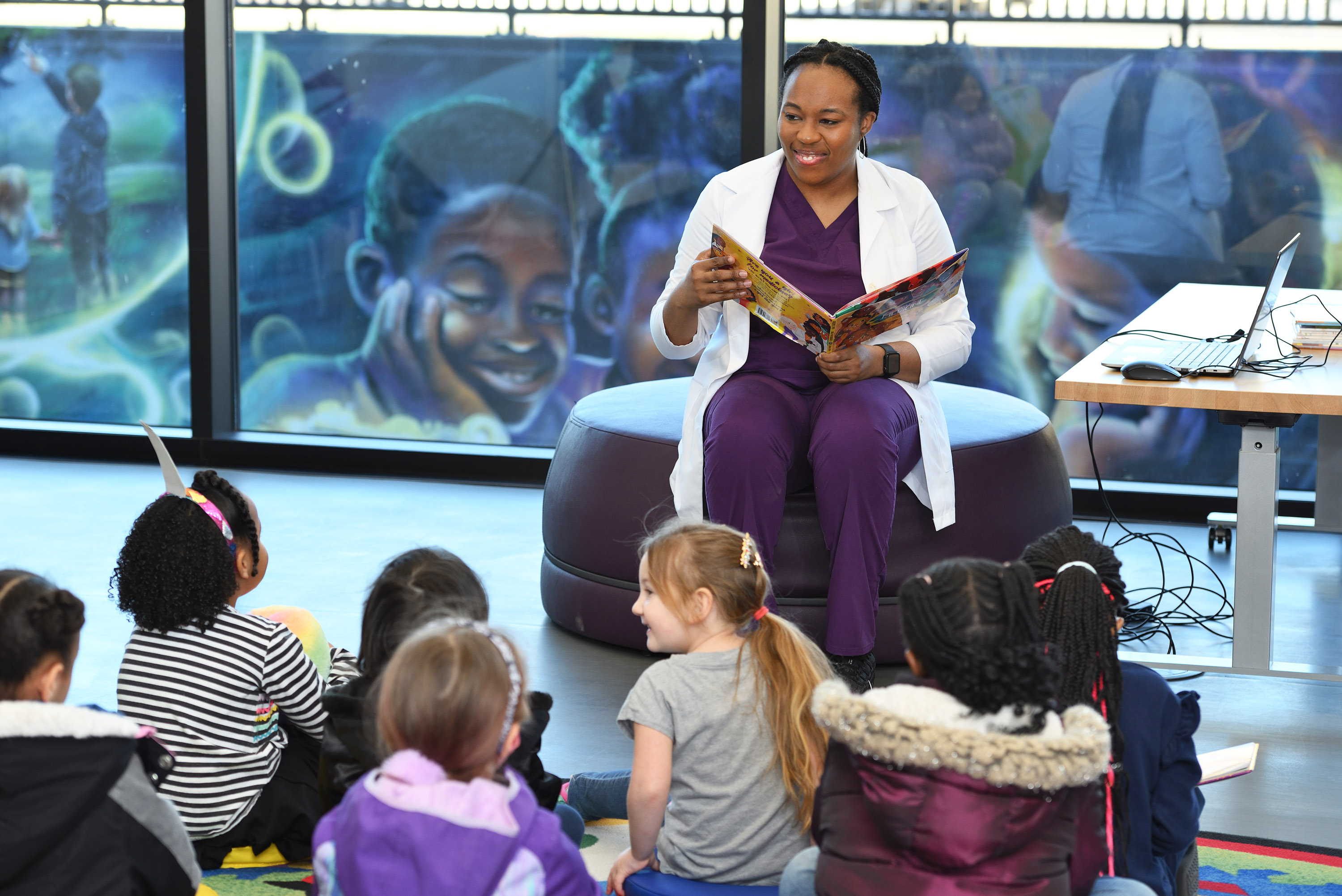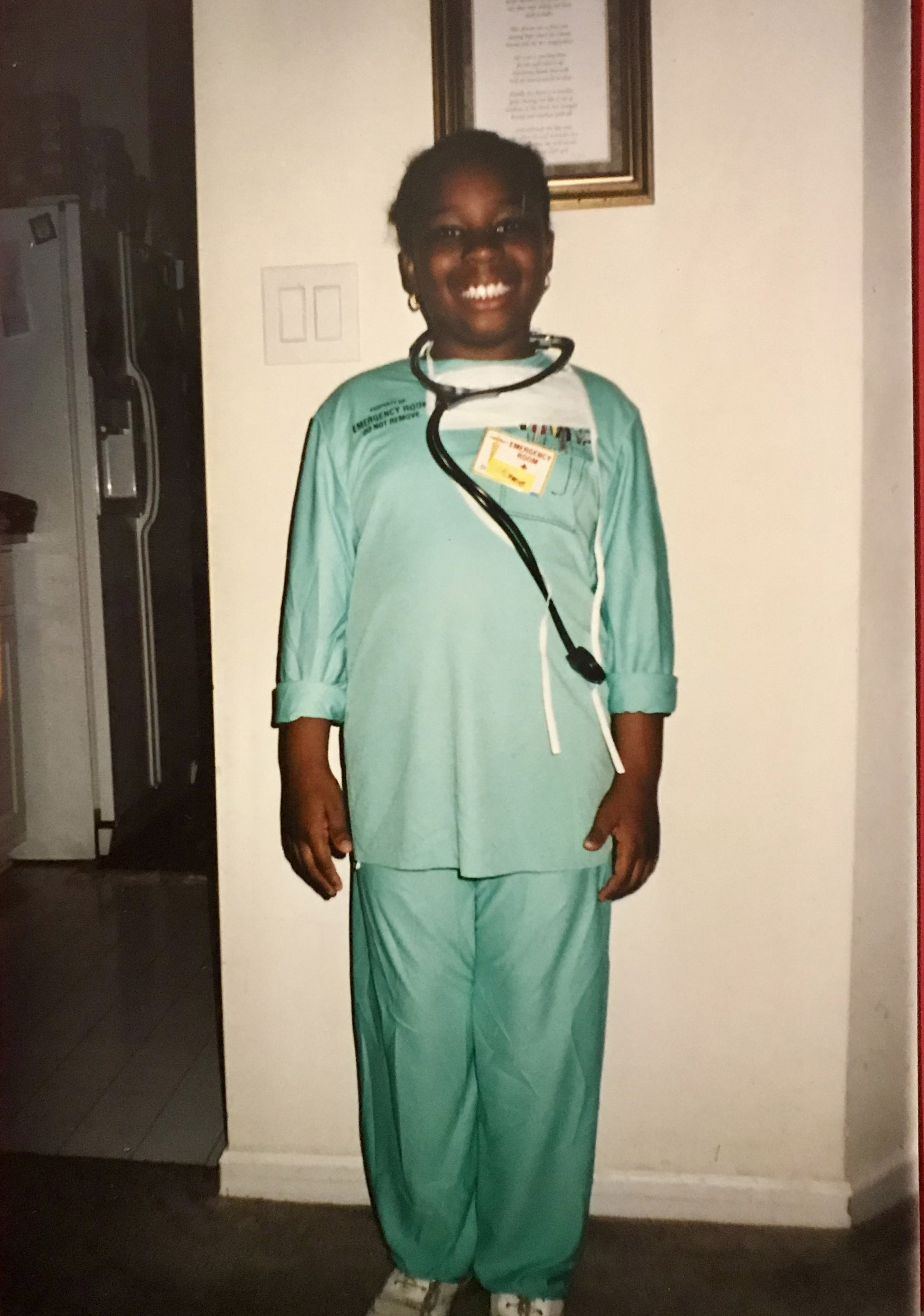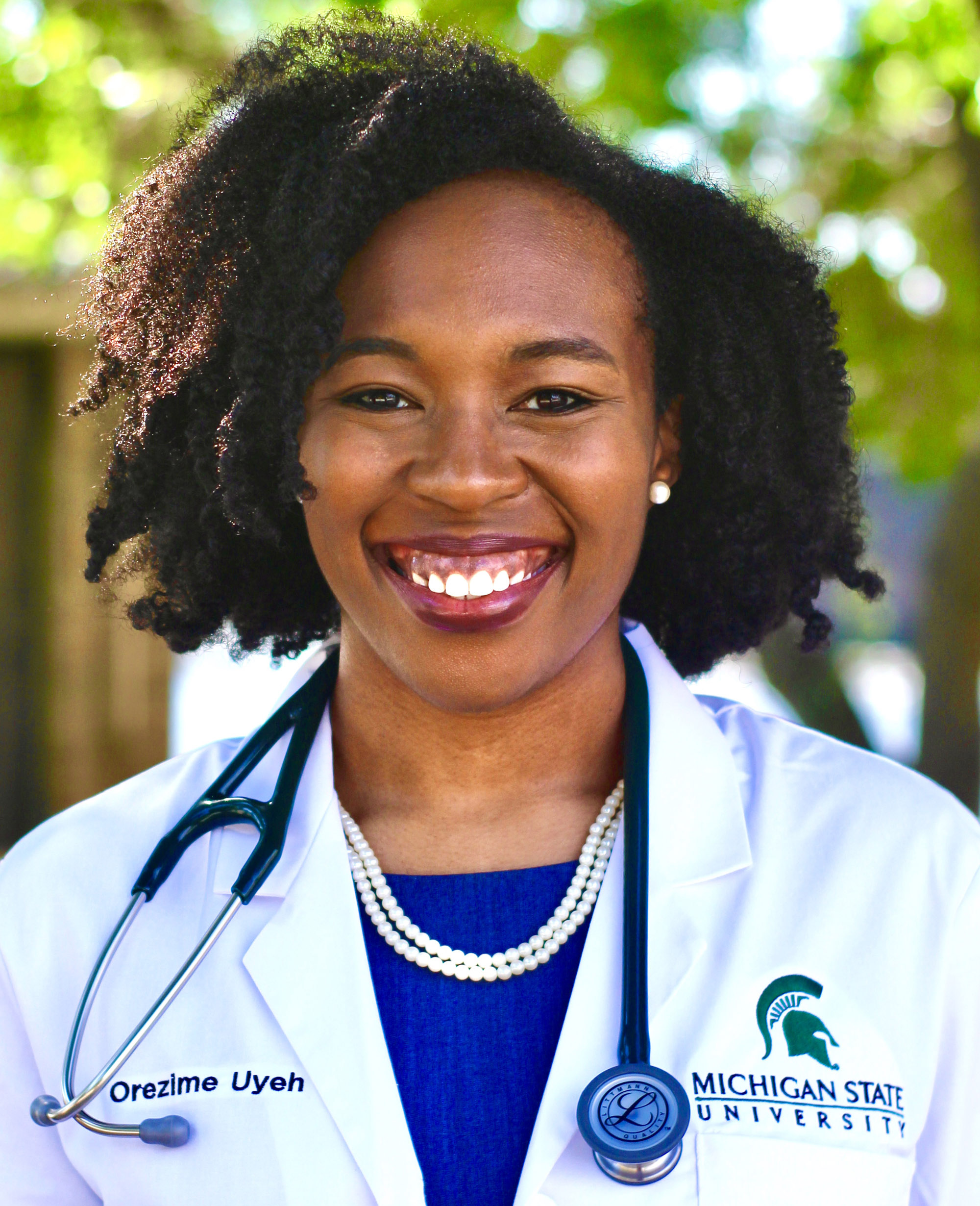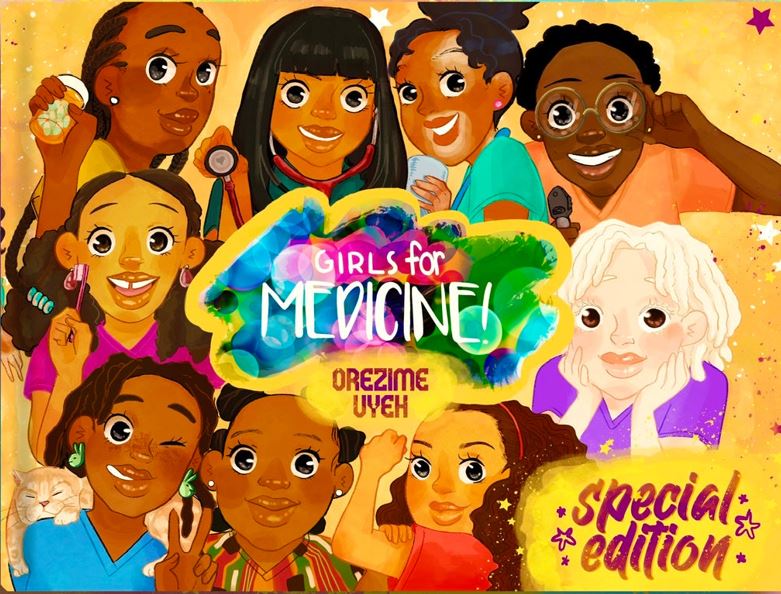When Orezime Uyeh was in second grade, her mother dressed her as a doctor for her school’s costume day. The idea that she could actually become a physician would not enter her mind for many years. Art was her passion, and, in her world, little Black girls did not grow up to be doctors.
“I didn’t think I could become a physician,” said Uyeh, whose parents migrated from Nigeria to the United States before she was born, “because I didn’t know anyone who looked like me who was.”
Now in her third year in the College of Human Medicine, Uyeh — known to her friends as Rezi — hasn’t forgotten her doubting young self or the countless other little Black and Brown girls who can’t see themselves as medical professionals.
That inspired her to write and illustrate, “Girls for Medicine,” a picture book about the MedGirl Squad, a group of nine Black and Brown girls interested in careers as doctors, physician associates, dentists, pharmacists, veterinarians and optometrists. She has read the book to elementary school groups in Flint, where she is studying, and in Georgia, where she grew up.
“I gave them the tools to feel confident in pursuing a degree in medicine,” she said. “It made me think about how I wish I’d had a book like that.”
Her mother brought home books and encouraged her children to read, but “there weren’t a lot of characters in those books who looked like me,” Uyeh recalled, “let alone people who looked like me who were in science.”
As a middle school student, she enjoyed science classes, not because they were easy, but because they challenged her more than her art classes. In seventh grade, she told a teacher she wanted to become a “pedi-atrikian,” a word she could not yet pronounce.
“That’s still what I want to be,” she said — a pediatrician.
She received her bachelor of science degree from the Georgia Institute of Technology and her master of science from Georgia State University. Around that time, she read that fewer than 3% of physicians in this country were Black women.
She applied to medical schools and, while awaiting responses during summer break in 2019, inspiration hit. She could combine her passions for art, medicine, teaching and mentorship. She stayed up until 3 a.m. drawing pictures of the young girls who eventually would be featured in her book and sent them off to a graduate school friend.
“Rezi,” her friend texted, “are you going to write a children’s book?”
“I guess I am,” she responded. “I’m going to write a children’s book.”
“I teared up so many times because I was addressing something I had struggled with,” she recalled.
She published her first edition of “Girls for Medicine” in 2020. On Nov. 8, 2021, she released a revised “special edition,” including a page about herself and more details about the members of the MedGirl Squad.
“I wanted to humanize them more,” she said. She wanted her readers to see that “this little girl is in a single-parent home like me; this one likes gymnastics, etcetera. It was a good opportunity to show children that it’s okay to have multiple interests. They should be encouraged to pursue them even if they want to go into the medical field.”
Not long ago, Uyeh was invited to read her book to students in the elementary school she had attended in Henry County southeast of Atlanta. She wore a white coat and scrubs and was introduced as a medical student.

A first grade girl raised her hand. “Wait,” she said. “I thought you said you are a doctor.”
Not yet, Uyeh answered, but she was going to a school that would teach her to become a doctor.
“Can you come back when you are a doctor?” the little girl asked.
“‘Absolutely,’ I told her,” Uyeh said. “My heart exploded. The way she looked at me seemed to say, ‘If she can do it, I can do it.’ I could feel that she was counting on me to become a physician.”
At another reading, a Black boy in the fourth grade raised his hand. “I have one question,” he said. “Where’s the book for us?”
“I’m not going to forget you all,” she assured him.
Her studies demand most of her time, but, for her, art is a form of relaxation. Eventually she plans to publish another book for Black and Brown boys called “Boys for Medicine.”
“It’s been a little bit slow,” she said, “but I’m working on it.”
This story was originally featured on the College of Human Medicine website.


